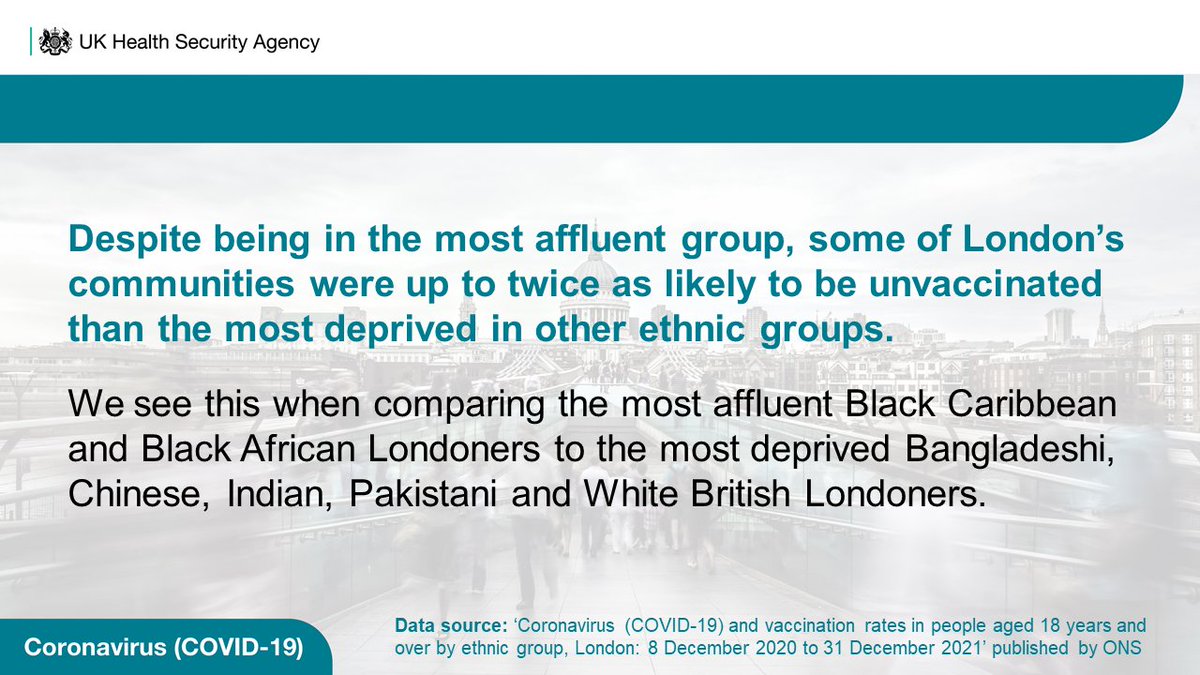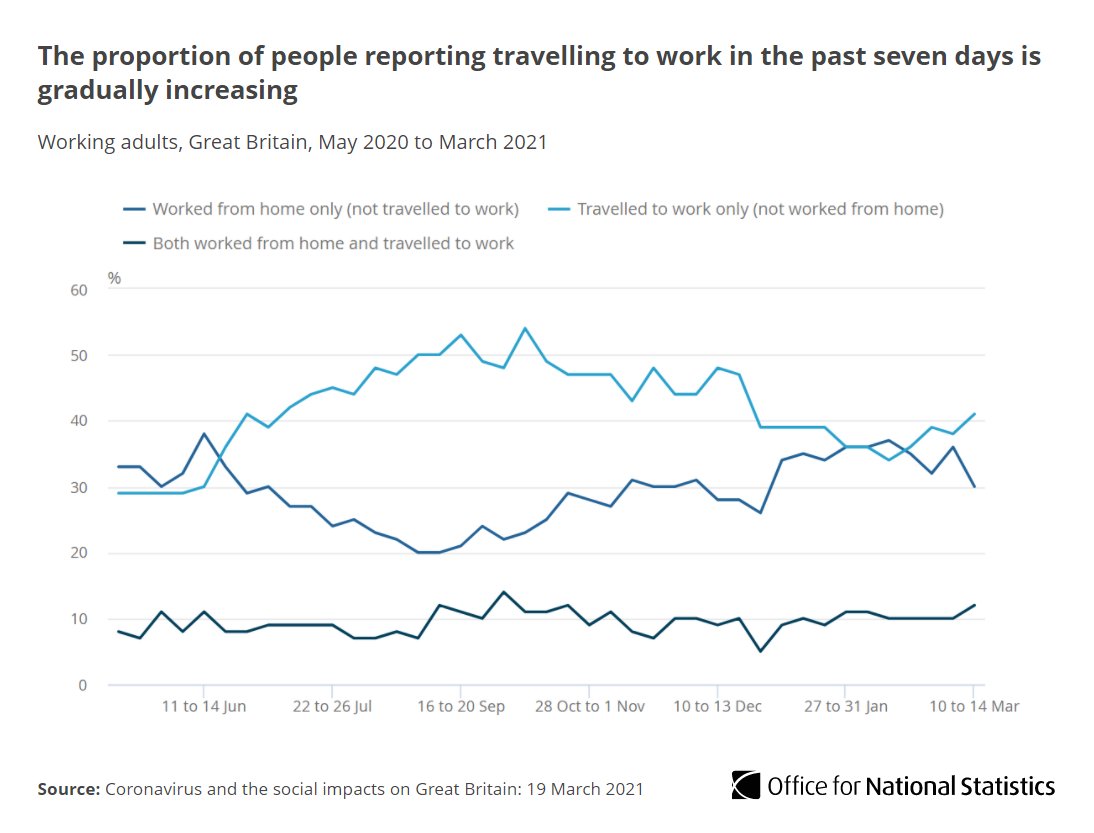
1/7 Two years after the first national lockdown, it’s fantastic that we can live a more normal life safely, largely thanks to the #COVIDvaccine. But many Londoners remain defenceless to the harm of #COVID19 by being unvaccinated or incompletely vaccinated. standard.co.uk/comment/commen…
2/7 Recent data from @ONS lays out the ongoing disparities between adults in London who have had the vaccine and not had the vaccine. Ethnicity, age and deprivation all play a complex role in how likely somebody is to go and get vaccinated.
Data here ➡️ ons.gov.uk/peoplepopulati…


Data here ➡️ ons.gov.uk/peoplepopulati…



3/7 The proportion of unvaccinated Londoners was higher in the most deprived than least deprived.
But worryingly, even the most affluent Black Caribbean & Black African Londoners were up to 2x as likely to be unvaccinated when compared to the most deprived of other ethnicities.
But worryingly, even the most affluent Black Caribbean & Black African Londoners were up to 2x as likely to be unvaccinated when compared to the most deprived of other ethnicities.

4/7 The underpinning reasons are wide-ranging. I’ve heard community leaders and individuals talk about the impact of myths, misinformation, safety concerns, low trust and confidence in authorities, access challenges to health services and believing natural infection is enough.
5/7 Despite lower levels of vaccine uptake, we do see people coming forward to #GetVaccinated every day.
We have made great strides throughout the pandemic to engage with London’s diverse communities and the messages and outreach programmes are working, but we have more to do.
We have made great strides throughout the pandemic to engage with London’s diverse communities and the messages and outreach programmes are working, but we have more to do.
6/7 With cases on the rise again due to the transmissibility of BA.2, the last thing I want to see is some communities being hit repeatedly harder by missing work or school, being admitted to hospital or experiencing the debilitating effects of #LongCovid. coronavirus.data.gov.uk/details/cases?…
7/7 Please give yourself the best chance of living safely with this virus by having your full vaccination course and the booster. The vaccines are safe, effective, and have stopped countless infections leading to hospitalisation, so #GetVaccinatedNow: nhs.uk/covidvaccine
• • •
Missing some Tweet in this thread? You can try to
force a refresh





